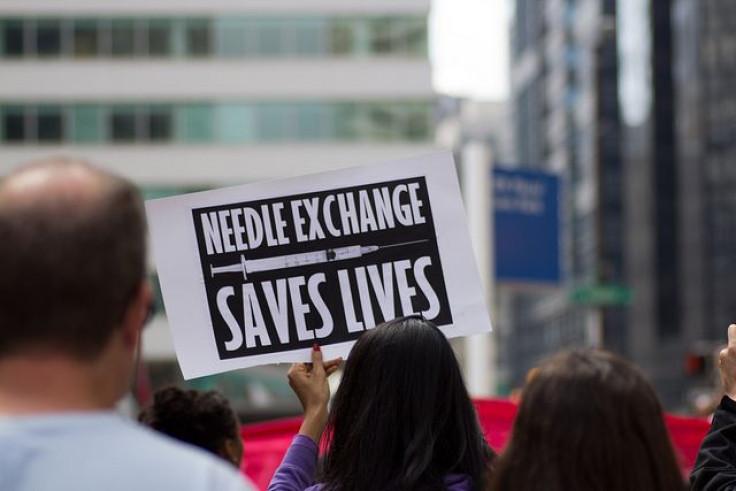Indiana County Battling HIV To Continue Needle Exchange

LOUISVILLE, Ky. (Reuters) - An Indiana county at the center of the state's drug abuse-related HIV outbreak will continue its needle exchange for up to a year, local officials said on Thursday.
Scott County is the first county in the Midwestern state to be approved to provide clean needles to battle the outbreak linked to intravenous drug use.
Governor Mike Pence had signed a law earlier this month that allows counties to seek permission for such programs when fighting HIV or Hepatitis C epidemics tied to drug abuse, although it provides no funding.
The number of HIV cases since last December has risen to 160 in Scott County, a largely rural area in southern Indiana about 30 miles north of Louisville, Kentucky, government officials said. The county, with fewer than 24,000 residents, previously had five or fewer HIV cases diagnosed per year.
A Republican who has expressed reservations about needle-sharing programs, Pence declared a public health emergency in Scott County and approved a state-run program in March. Pence extended the declaration last month.
Dr. Jerome Adams, the state's health commissioner, approved the county-run exchange to start on May 25, a day after Pence’s order is set to expire.
In its request to allow the year-long program, Scott County officials said needle-sharing has decreased as a result of the exchange, with 14,981 used needles taken off the streets and 16,952 new ones distributed.
Under the new law, state funds cannot be used for the exchange. Scott County officials said they are accepting donations of funds and supplies as companies and even some diabetics have given their unused needles for the cause.
Needle exchange programs provide drug users with sterile needles to try to stop infections from spreading through the sharing of contaminated needles.
No other Indiana county so far has requested to start an exchange, but neighboring counties are monitoring the situation in Scott.
Human immunodeficiency virus (HIV), can cause AIDS, or Acquired Immune Deficiency Syndrome. More than 1.2 million people in the United States are living with HIV, according to the U.S. Centers for Disease Control and Prevention.
(Reporting by Steve Bittenbender; Editing by Mary Wisniewski and Susan Heavey)



























